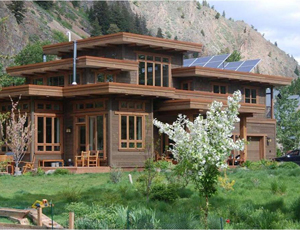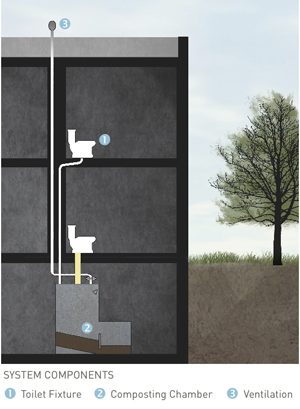

For cities to be truly sustainable and resilient, wastewater treatment needs to be localized, not centralized, chorused landscape architects and others at the American Society of Landscape Architects' 2011 Annual Meeting & Expo, held on Oct. 29 to Nov. 2 in San Diego.
“There is room for improvement in the modern approach to stormwater management,” said Jack Ahern, a professor in the Dept. of Landscape Architecture and Regional Planning at the University of Massachusetts, Amherst.
Water and sustainable cities were strong themes of the ASLA meeting, which had 5,583 registrants. At the conference, leaders of ASLA, the American Institute of Architects (AIA) and the American Planning Association (APA) issued a call for more collaboration toward the creation, design and execution of plans and sustainable projects.
“It is time for designers as a collective to step up and help policymakers do the right thing,” said Clark Manus, 2011 AIA president and CEO of Heller Manus Architects, San Francisco. “We … have the ability to reach out through our associations.”
For about three years, the three groups have been collaborating on sustainable communities—but without the voice of the engineer.
Jonathan Mueller, immediate past president of ASLA and senior landscape architect with Landmark, a landscape architectural studio of Architects West in Coeur d'Alene, Idaho, said engineers are an important part of the collaboration. “There are optimistic signs of engaging the engineering community,” he said.
Mitchell J. Silver, APA president and Raleigh’s chief planning and economic development officer, issued an invitation to engineers, saying, “We would welcome the American Society of Civil Engineers as part of the collaboration toward planning for the future of our community and country. With an election a year away, we have to stand shoulder to shoulder and demand a new vision."
Moving toward decentralized wastewater treatment, Ahern is calling for more “safe to fail” design experiments. “We can learn by doing and by experimenting,” he said. “It is imperative to act with uncertainty.”
In an effort to push decentralized treatment, the Cascadia Green Building Council (CGBC) has led research that compares the environmental impact of a conventional centralized treatment system to four types of decentralized, smaller-scale systems. In September, CGBC released results of the two-year study, called "Clean Water, Healthy Sound: A Life-Cycle Analysis of Alternative Wastewater Treatment Strategies in the Puget Sound Area."
“Cities around the country need to redo their wastewater treatment systems,” said Katie Spataro, research director in the Seattle office of CGBC. “We are saying, ‘Let’s look at decentralization.' Our policies and codes need to support that, which they don’t.”







